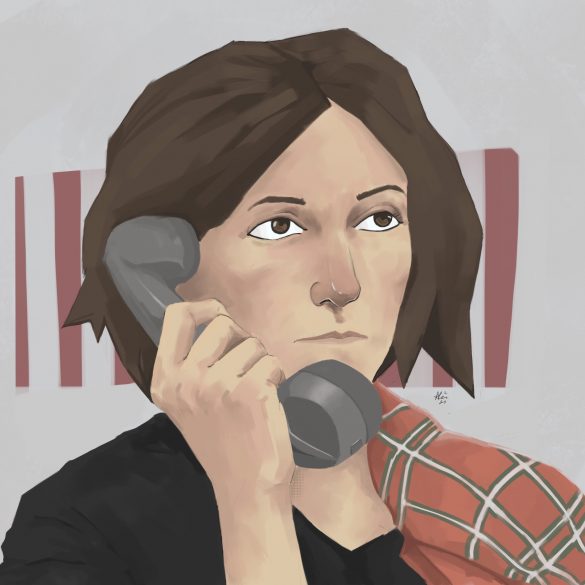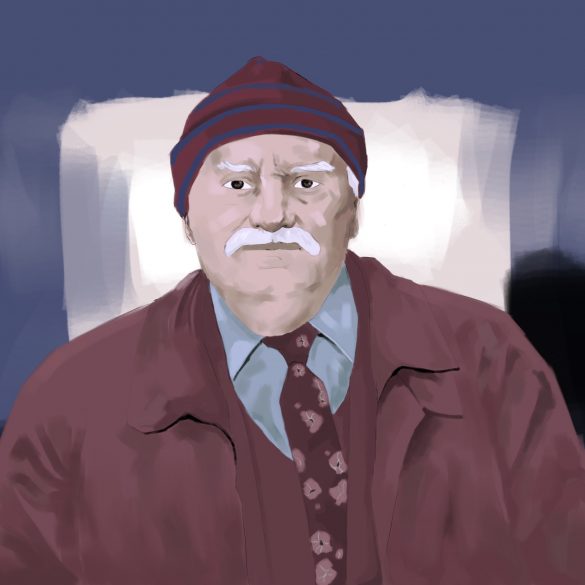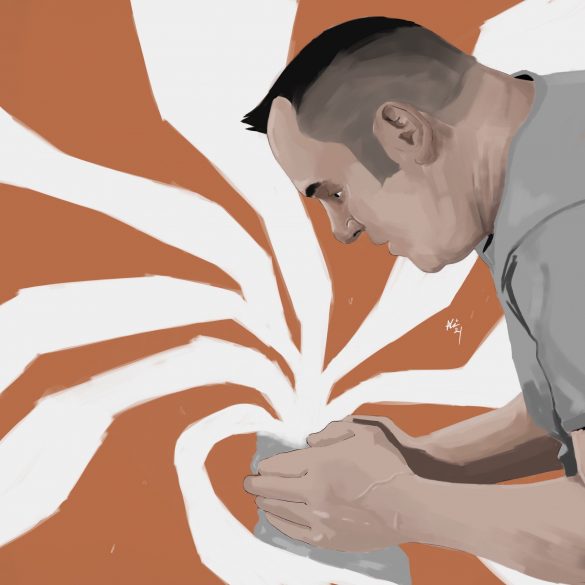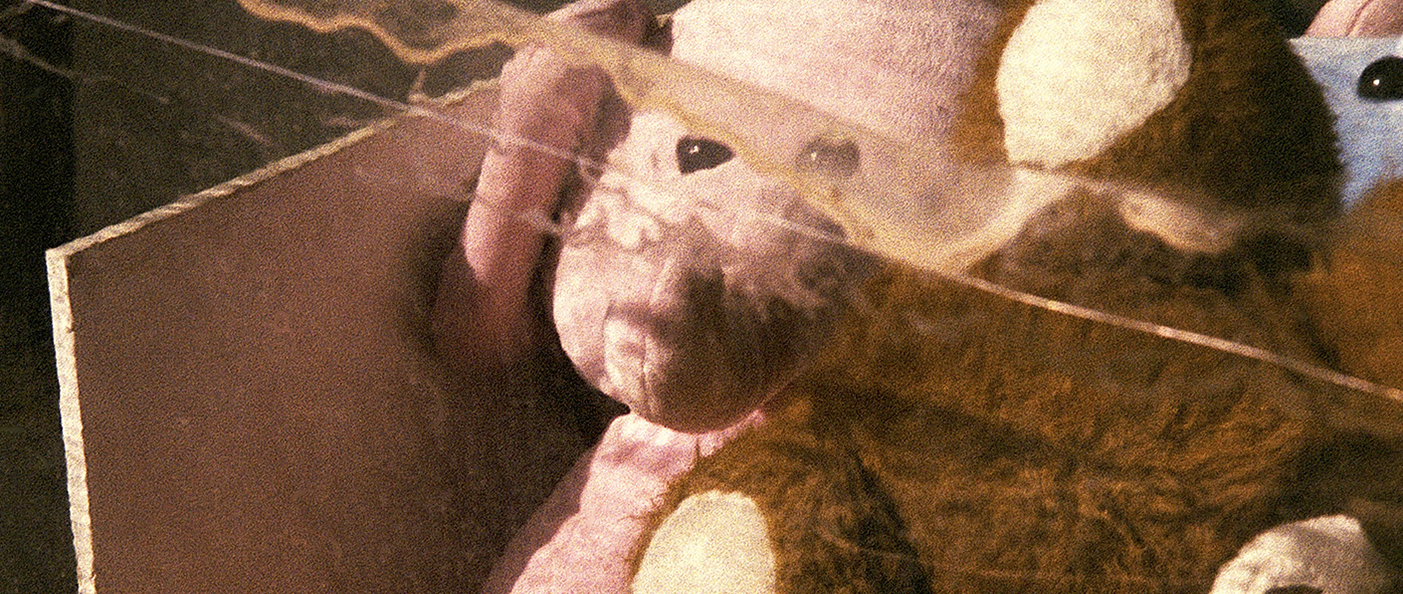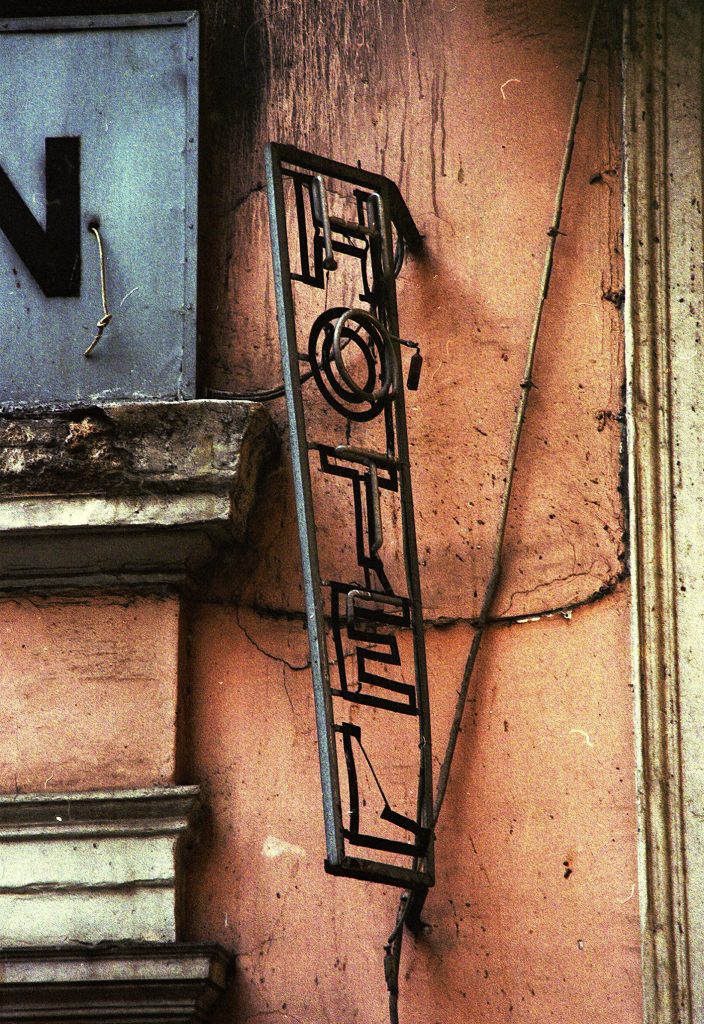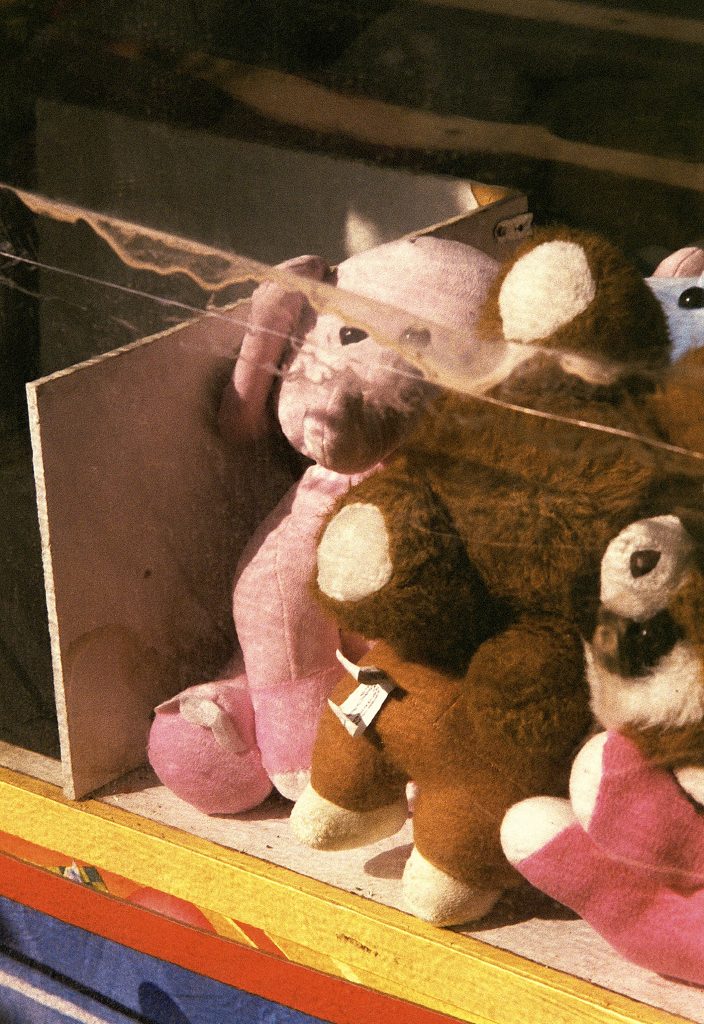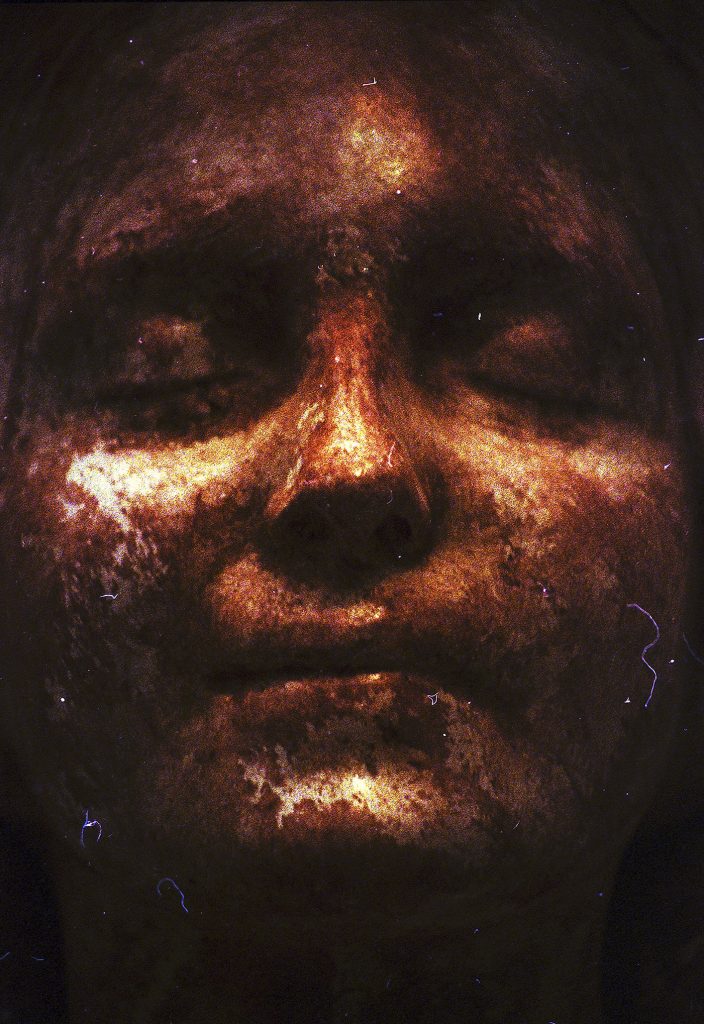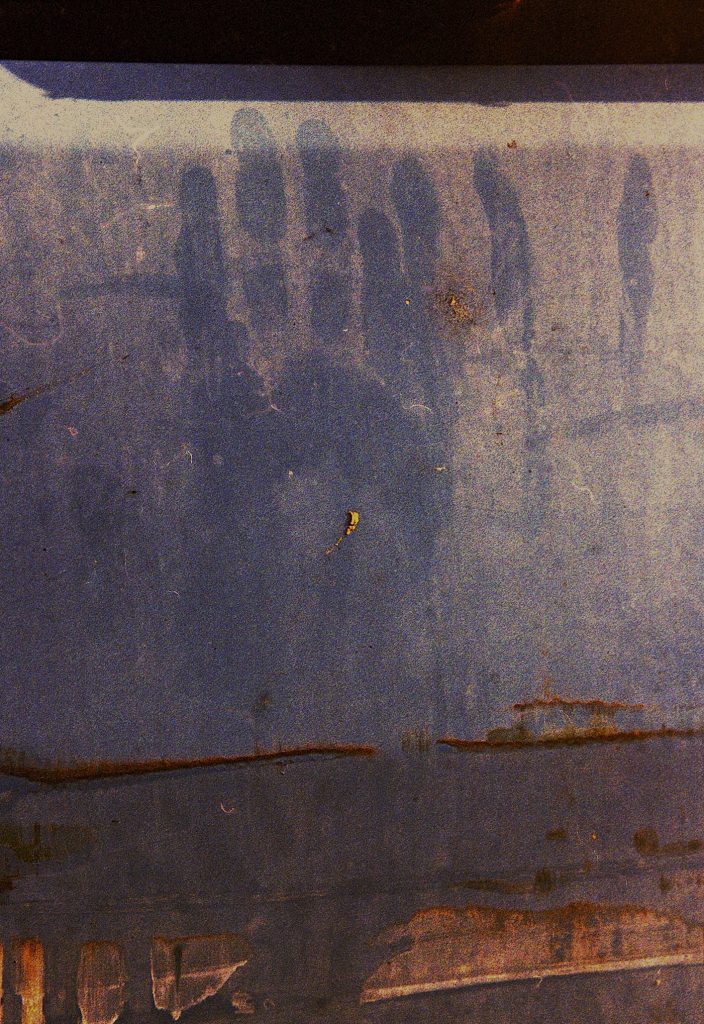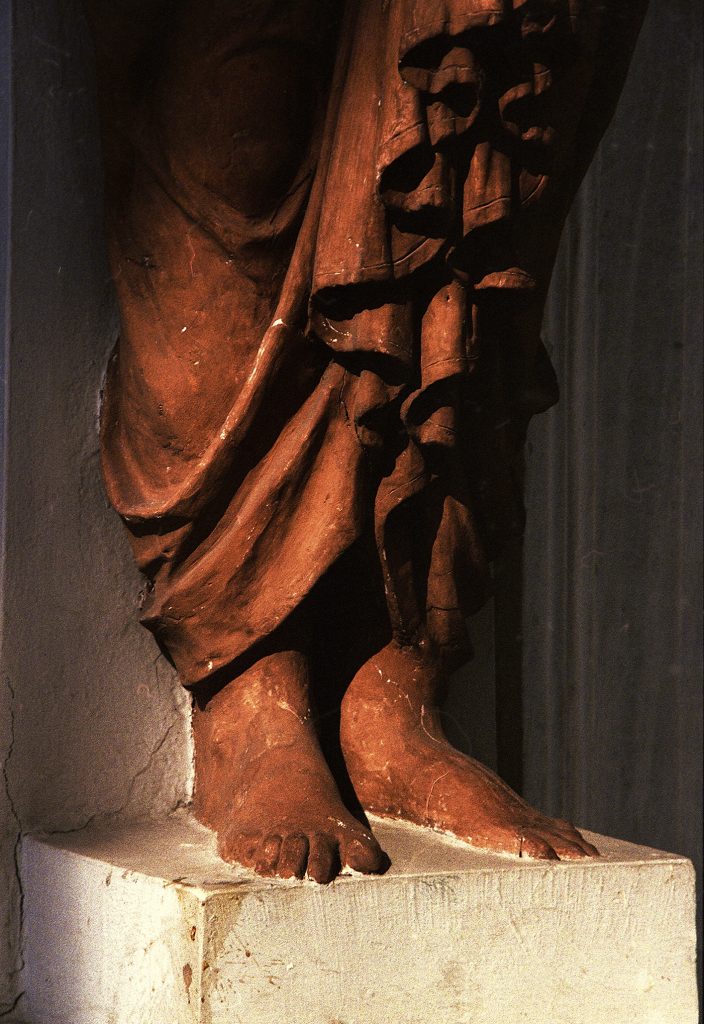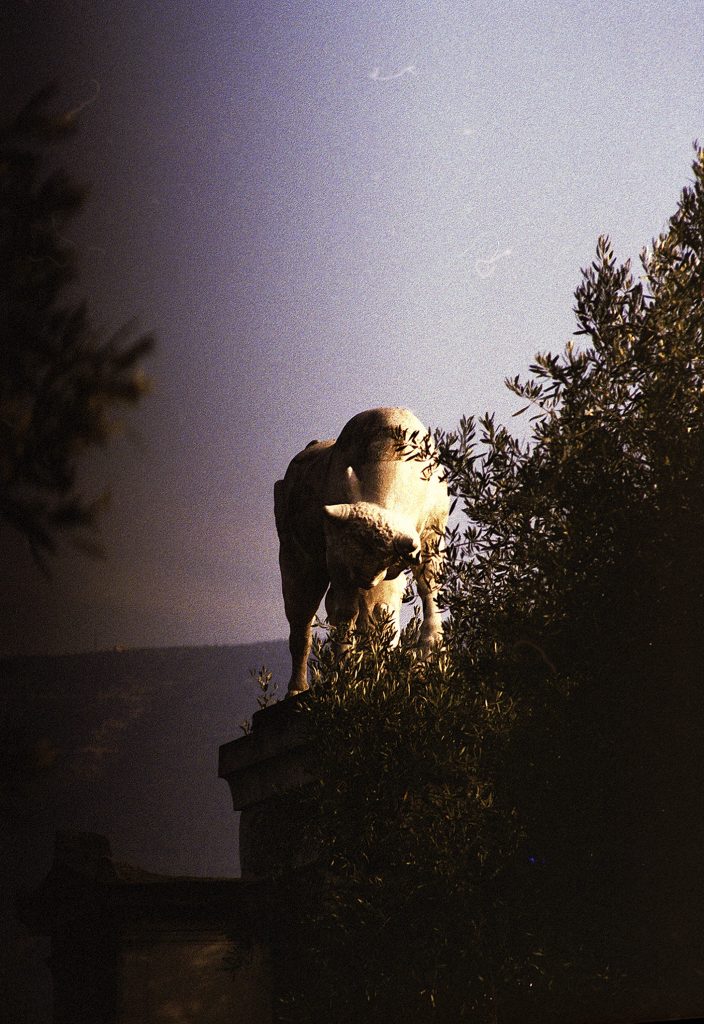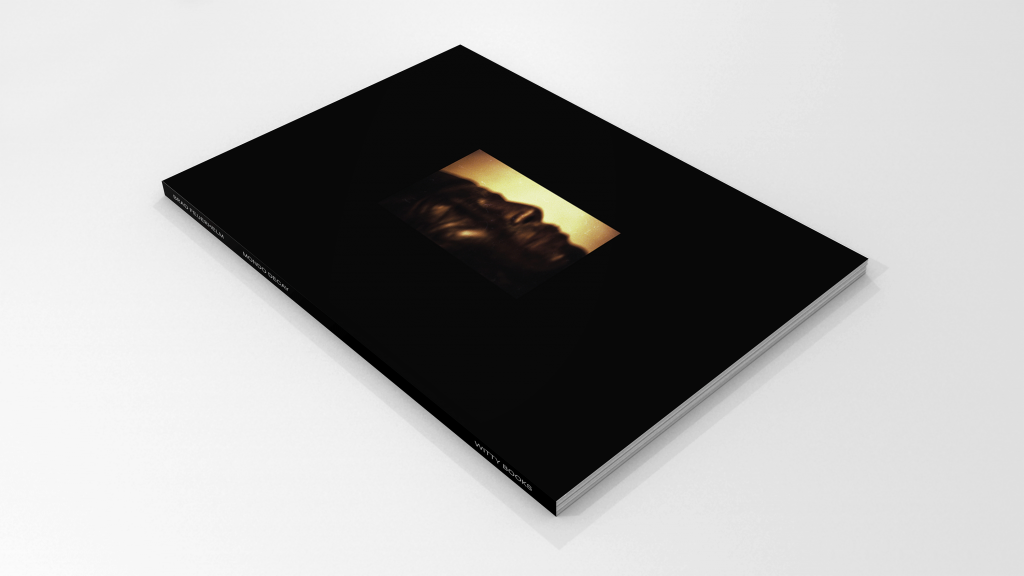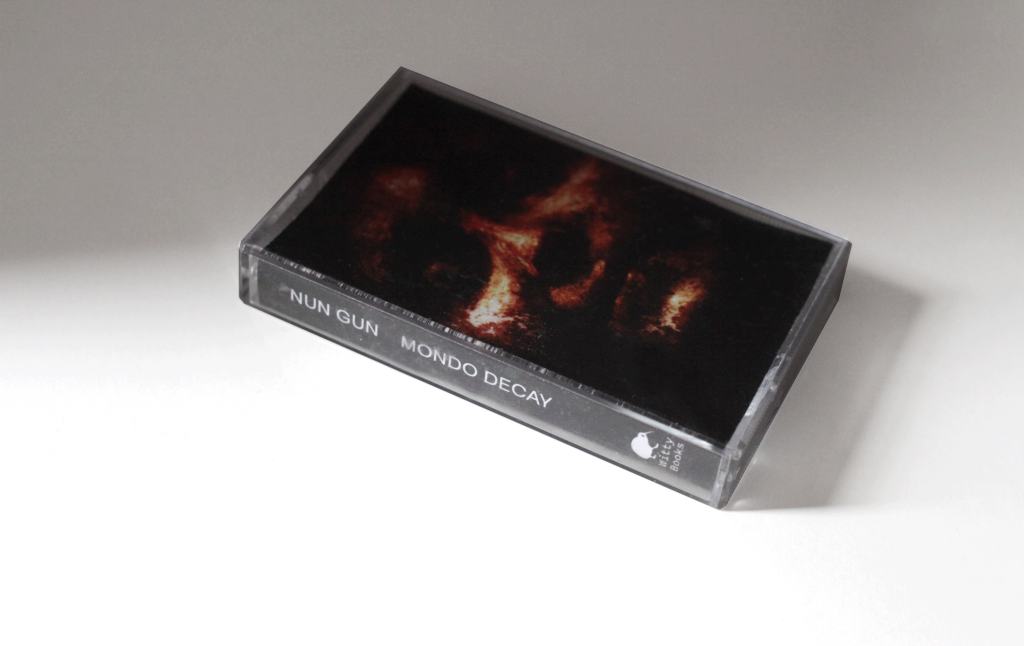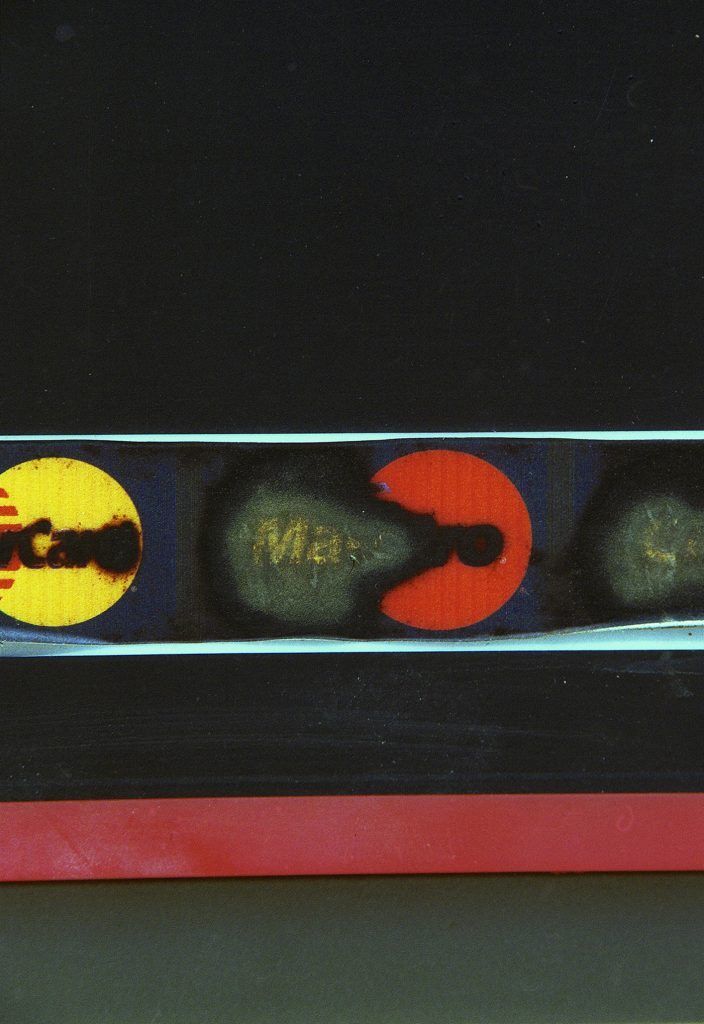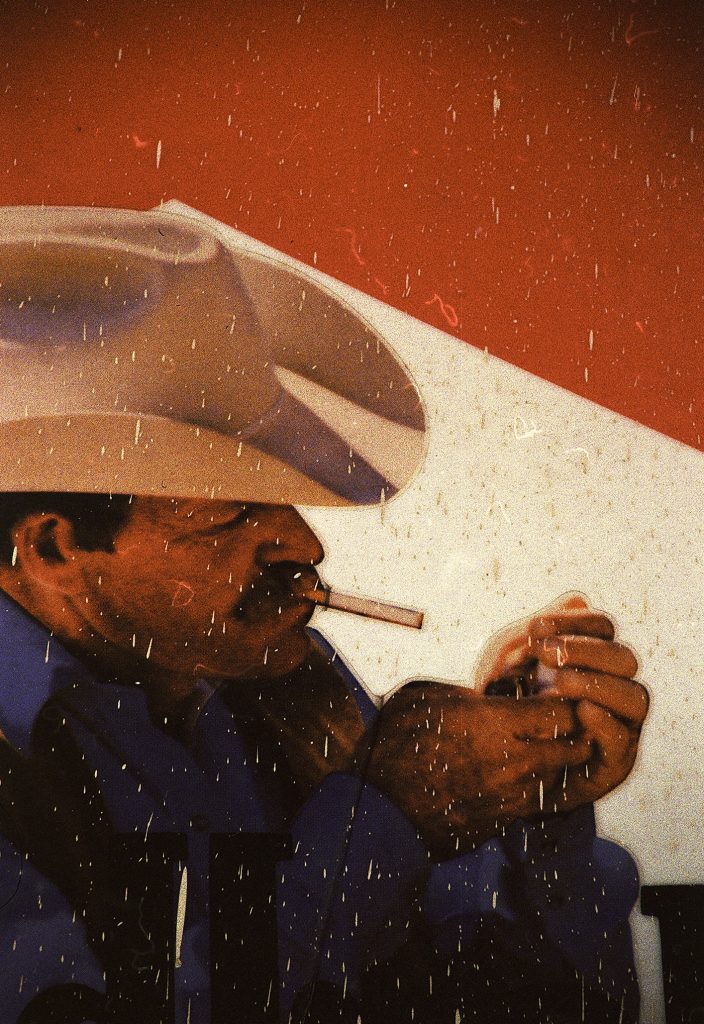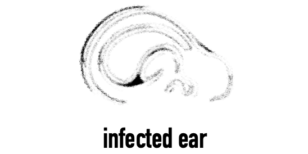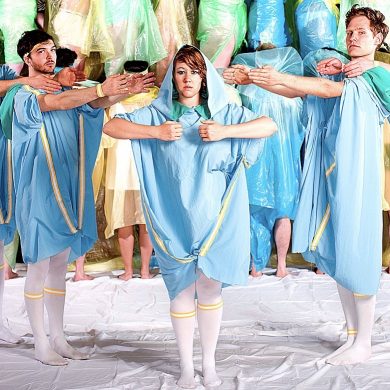[vc_toggle title=”Lyrics: Stealth Empire”] (The collapse of everything) Digital dictatorship Stealth Empire Fear of the unknown Ambient Abuse The collapse of everything Game over Instability Unpredictability Enhanced reality Harass, coerce, cajole The manipulative settings of control Digital dictatorship Ambient abuse Abuse by proxy Considerable charm Neuroplasticity hijacks your mind The collapse of everything Game over Retreat, cajole, coerce Threaten, stalk, Contempt, convince, harass Manipulate his targets Malicious rumours Smear campaigns Provoking the victim Colluding, suffocation Neuroplasticity hijacks your mind Slavery still exists The collapse of everything Information medicine Digital dictatorship Stealth Empire Fear of the unknown Ambient Abuse The collapse of everything Game over [/vc_toggle][vc_toggle title=”About Nun Gun and Mondo Decay”] Nun Gun is the award-winning multimedia collaboration between visual artist Brad Feuerhelm, and musicians Lee Tesche and Ryan Mahan of the acclaimed band Algiers. Mondo Decay marks the outfit’s debut release, an audiovisual dialogue that pairs 144-pages of Feuerhelm’s malformed post-industrial gazing photography with an accompanying original soundtrack cassette produced by Tesche and Mahan. Mondo Decay focuses the group’s critical practice on the genre of horror itself, most notably the troubling sights and sounds of the 60s and 70s Italian Mondo, cannibal and zombie exploitation films by Gualtiero Jacopetti, Umberto Lenzi, and Lucio Fulci. Instead of the “savage” tropical climes as employed by the genre’s directors, the exoticism found in original Mondo films has been subverted to look at the failings of capitalism in the West. Musically, this examination finds Tesche and Mahan disassembling, slowing down, and reconstituting the aural hellscapes of Riz Ortolani, Roberto Donati, and Fabio Frizzi’s scores, creating an uncanny and unsettling chopped and screwed cacophony of dubbed-out noise, doom-jazz, rap, and post-industrial-stained death disco. In the process, the duo summons an array of experimental techniques borrowed from the likes of tape music vanguard Halim El-Dabh, Vladimir Ussachevsky, and Delia Derbyshire; dub and bass culture innovators King Tubby and Scientist; and Houston dance music and rap pioneers Darryl Scott and DJ Screw, drawing a line of inquiry into the musical concept of decay. By embracing the same antiquated resources—various tape recorders, tape echoes, low-bit-rate samplers, and short wave radio equipment—Tesche and Mahan explore the deterioration and abstraction of Feuerhelm’s imagery through decaying frequencies, phrases, and recording mediums. Contributions from the Pop Group’s Mark Stewart; Chicago no-wave industrial gospel godfathers ONO; Cleveland, Ohio’s genre and gender non-conforming Black Culture amalgam Mourning [A] BLKstar; renowned authors Blake Butler, Sohail Daulatzai and Michael Salu; Brazil-born, Berlin-based visual artist Luiza Prado; and musician/designer Farbod Kokabi, give voice to the sound of future-oriented de-colonial subjectivity and help to further realize the anxiety-fueled, pandemic-induced isolationism roaming throughout the album’s cinematic 48-minutes. Mondo Decay purports to flip the lens on what is exotic now and what life feels like under the extended lockdown and oppressive moment. Available through Witty Books and Algiers Bandcamp [/vc_toggle][vc_toggle title=”Tracklist: Mondo Decay”] A1. The Spectre (feat. Michael Salu) A2. Stealth Empire (feat. Mark Stewart) A3. Beef Diet A4. Gold Mine (feat. ONO) A5. More Viscous Than Dawn (feat. Luiza Prado) A6. Excusable Homicide B1. On Neurath’s Boat (feat. Farbod Kokabi w/ Mourning [A] BLKstar) B2. The Aesthetics of Hunger B3. Under The Throne (feat. Sohail Daulatzai) B4. Addio Zio Sam B5. I Used to Wear a Face (feat. Blake Butler) B6. America Addio Lee Tesche: Saxophone, Electric Guitar, Acoustic Guitar, Lap Steel, Bass, Percussion and Motors, Bowed and String Instruments, Sampler, Drum Programming, Tape Manipulation, Field Recording, Radio and Electronics, Synthesizer, Voice, Mixing and Production Ryan Mahan: Synthesizer, Piano, Bass, Drum Programming, Voice Brad Feuerhelm: Drums on A1, A3, A4, A5 [/vc_toggle]Nun Gun
Album: Mondo Decay
Release Date: 2021
USA
Nun Gun is the award-winning multimedia collaboration between visual artist Brad Feuerhelm, and musicians Lee Tesche and Ryan Mahan of the acclaimed band Algiers. Mondo Decay marks the outfit’s debut release, an audiovisual dialogue that pairs 144-pages of Feuerhelm’s malformed post-industrial gazing photography with an accompanying original soundtrack cassette produced by Tesche and Mahan.
Lee Tesche and Brad Feuerhelm talk about Mondo Decay
Will you guys tell us a little about Mondo Decay?
[Brad] The process came from a longstanding project that Lee and I had spoken about making based on a slightly humorous evening playing the soundtrack for Cannibal Ferox at the wrong speed. We made a blood pact at that moment in 2012 or 2013 to make something from it. So, 2020 has had some silver linings. The Ear/Eye award came up with a publisher and we connected the dots with that project and my own images that I had been making in late 2019, which fit the mould.
[Lee] Musically I’m always pulling from the post-punk lineage. Equal parts guitar music, dub, free jazz, and musique concrete/the avant-garde. It was all seeping in here. But specifically Scientist and Delia Derbyshire, stuff like that.
The vocal guests came about slowly. As I’ll explain in a bit, I really wanted vocals and voice to play with as I navigated some of the ideas and techniques that we employed. I reached out to friends who either I had been wanting to collaborate with, or may not be typically involved in music/song but considers it part of their inner fabric, or had unique and important perspectives and words to add to some of these themes that we were exploring. Sometimes it was all three.
I first approached Sohail Daulatzai because not only is he a storied film scholar that’s written quite a bit about some of the themes that we were exploring, but he also has a great speaking voice. We’ve worked together on a number of projects over the years and had made a point to talk regularly throughout the pandemic, just as a means to check in with each other.
I explained the concept to him and, forever the researcher, he sat down and watched all of the Italian Mondo and cannibal films in one marathon session, which is kind of horrifying and hilarious to me. The track that he is on was conceived as an interstitial piece in the vein of the weird lighter funk tracks that permeate parts of these horror soundtracks or some of my favorite moments on something like DJ Shadow’s Endtroducing. He expressed how much he loved some of those classic Roots reggae tracks of the 70s that musically were light and upbeat sounding, but lyrically were militant as fuck, and how that duality created a wonderful tension. He wanted to write something that could occupy that same space that spoke to the ideas of Third Cinema and touched upon Italian colonialism. Knowing I planned to slow everything down considerably with the tape machines, he requested, “Just don’t make me sound like Clyde Smith from Ghostface’s Supreme Clientele.“
How would you compare the album with the original soundtracks of those movies?
[Brad] It is an extension to some degree with a mashup of different genres. Whereas the originals are certainly a product of their times with great synth tracks coupled with awkward funk tracks, time passes and the Internet happens and genres blend and we find ourselves leaning into a number of references from post-punk to cold wave and goth. There is also a heavy feeling of post-industrial sculpting on the tracks that compliment the decay found in the images.
[Lee] Haha, it’s slower…The music on the album pulls heavily from all of the Ortolani and Frizzi scores, but the goal was to turn them on their head.
Brad and I have been friends for many years. As he referenced earlier, this whole project came about around 2012 or 2013. We were both living in London at that time and one night, I was over at Brad’s house, and he pulled all of these records to share with me. We stayed up late drinking and listening and I was really drawn into particularly the Cannibal Ferox score. Even the bizarre funk-disco segue tracks were super heavy. We must have listened to that record 10 times in a row until super late at night. The next day I went to check it out again and I looked at the sleeve and realized it was a 45 rpm LP and we had been playing it at the wrong speed. I guess we had a few too many drinks. I put it on at the proper speed and was kind of disappointed at how less haunting and dirge-y it was.
This led to two epiphanies. The first being that we should explore this phenomenon in some way creatively, which at that time was the simple thought of a tape loop project based on these scores. The second thing was the fact that surely we weren’t the first people to prefer the sound of a record at the wrong speed to the original. This led me to years of exploration from the beginning of tape music experiments through Houston and DJ Screw. Before Screw there was Darryl Scott, a predecessor who would DJ parties around town and similarly mistakenly played 45RPM Maxi singles back at 33 ⅓ on the dance floor, stuff like Mantronix and Laid Back, but the reactions from people led him to keep exploring that idea (He later put out a solo record called 33 1/2). When you slow things down by a 30% frequency shift, sounds change in ways that you can’t quite explain. Some things become inaudible, some things become softer. The Sub frequencies can all of a sudden shake your room. DJ Screw used it as a way to focus on the storytelling and the words of a lot of the tracks that he was working with, but as you go further back into tape music and the whole history of electroacoustic music, there are more and more threads and fascinating things that people were experimenting with along these lines all the way back to the 1940s.
So this entire album was recorded at a much faster speed. Basically, I wanted to restage that accidental “happening” from years ago, so to speak. I built up skeletons of songs based on clips from some of these scores. Then Ryan, Brad, and I wrote and performed over the top of all of them creating new and original music. Then I mixed it all down at various slower speeds on the tape machine from -20% to -30%.
If you can imagine, most of these songs were written and played around 30 bpm faster and roughly 7 tones up. The frequency shift definitely made it hard to mix. I wanted to preserve the artifacts that this process created, not work around or try to correct them. So like a bass might move into sub territory or a vocal loses top end and shifts out of the normal vocal spectrum, but you roll with it. It’s not about things simply being lower in pitch or slower. You need the whole audio spectrum to shift with it.
Do you guys have a personal favorite Mondo?
[Brad] “Favorite” is perhaps a slightly difficult term to use in as much as most of these films are problematic. There are issues of ethical considerations implicit in the genre. However, The Killing of America (1981) is pretty close to what we were thinking when we began to “inverse” the optics of the Mondo genre.
[Lee] I was mostly interested in unpacking the Mondo Cane, Africa Addio lineage of pseudo-documentaries of Gualtiero Jacopetti and Franco Prosperi. As Brad said, favourite is probably the wrong word. The Lenzo and Fulci stuff we lumped in as there is some cross-over, but those other films affected me on different levels. I really hate them. I’m fascinated by the music that accompanies though. Addio Zio Tom (Goodbye Uncle Tom) is such a disturbing film, but I find Riz Ortolani’s score to be really sweet in that 70’s Italian love story movie score kind of way. So I kept asking myself, how do we pervert these sounds to undermine the films?
Our ‘loop song’ from the album is Stealth Empire. Will you please tell us how this song came together?
[Lee] I’ve been a huge fan of Mark Stewart and The Pop Group for most of my adult life, but also a lot of Mark’s solo stuff on Mute. It was a reference point for a lot of the music that I have been trying to make for as long as I can remember.
We met Mark a number of years ago. Ryan and I both were living in London at that time and went to the Southbank center to see a showing of Don Letts super8 films. During the entire screening the guy in front of us was loud and obnoxious, just kind of yelling bits at the screen during certain scenes (in hindsight it makes sense, it was him on screen). After the screening, we went to the bathroom and I thought “oh no, here comes that guy” as soon as he got closer I realized it was Mark Stewart and completely lost the plot. I believe I said hello.
Fast forward a few months and we had been invited to see Massive Attack play at Brixton Academy. We were hanging out in some special area with a ton of people, not knowing anyone, but recognizing so many faces. This was all new to us. We were the losers on the A list. We saw Mark sitting by himself in the corner and thought, “Fuck it, let’s go try to talk with him.”
It turned out, he was super nice and dialed in. He knew our record and just wanted to talk about music. It wasn’t too long after that that we began a dialogue about trying to collaborate together. For a brief second, we were trying to get him on the last Algiers record, and when that didn’t quite work out, this proved to be the next opportunity.
So the construction of the track itself went like this. It began with Ryan and I jamming over the Zombi 2 theme. Dub and bass culture has had a tremendous impact on me. I recognized really quickly that it’s actually kind of a Steppers Beat and I started writing some dubby stuff with shoegazey guitar. I’m not sure what Ryan was doing, but it was definitely more death disco, so we just kind of combined it. I put my guitar in the MPC and just played back chopped bits through the space echo and it really tied the two disparate ideas together. Pretty early on I thought Mark might work really well on this one. He had written some vocals that he sent over and I just dropped them on top and it was like he was in the room with us the whole time.
This whole album came together organically, and I asked so many people to contribute over the course of constructing it, but I typically gave very little direction. In some cases, I explained the thematics of what we were trying to do, but oddly, even when I didn’t everyone gave me material that worked perfectly, completing the story in a way that I may not have been able to had I been very explicit with what I was looking for.
Digging the visual work for the song, too. What is the next video going to be and how many videos are you planning to land on?
[Lee] It looks like three. Haha, it’s a one-man operation over here, so it really depends on what I have time for. They will all visually be in the same world, playing on that warped VHS 80s vibe. Obviously, a lot of this kind of is a weird fever dream imprint of our childhoods. I remember a kid in my neighborhood had bootleg horror movies on VHS in a brown paper bag that he would bring over to the other kids’ house when their parents weren’t home. Just a continuous play on the uncanny.
When and where will the album and the book be available?
[Lee] It’s out February 19th.
[Brad] The book and tape are available together in a small edition of 500. You can get it through Witty Kiwi the publisher who put out the ear/eye award or on the Nun Gun/Algiers Bandcamp page. Either are good until gone. The Bandcamp page will continue the sale of the digital album after the physical object sells out.
Should we expect a follow up to Mondo Decay?
[Brad] There is indeed a follow up planned for 2022. It is slated for May which will coincide with two books that I have been approved for with MACK. Those books are very specific and are perfect for an OST/multi-media collaboration. Beyond that, we are also considering live events and how to take the project towards a more cinematic reality.
Where is this project sitting in your personal discography in terms of significance and satisfaction?
[Lee] Presently it’s pretty high up. I used this as a means to learn a lot of new techniques and production skills that I hope to employ in the next Algiers. It being the most recent thing that I’ve done, it’s just very fresh and so I haven’t turned the page on it yet as I move on to other things.
I suppose this is also the most control that I’ve had over a project since some of my 4-track tapes I made in high school. Those always held a special place to me. I would record hours and hours of music on my tascam cassette 4-track and give away these tapes to other kids at school. That was kind of my musical identity for the longest time. This is very much in that same vein and is a continuation in a way. It’s really interesting to be feeling a lot of those same feelings and hearing the same sounds when I listen to this as I did to some of those productions that were equal parts amateur-not-know-what-I’m-doing and equal parts kind of brilliant in hindsight.
Did you work with the other half of Algiers, at all?
[Lee] No. I think I purposely wasn’t interested in involving Franklin or Matt. Sometimes it’s important to have music that exists outside of your core collective of people that you typically create with. I know that Ryan has needed that for a long time, so part of it was making that space to bring him in, but not them. And also, I knew that they are busy doing the exact same thing. I really wanted to create something that I could learn from and take to them. And then when we go to work on the next thing together as a group, we can all point to different things that we may really like about each other’s separate work that we want to take on board.
Have you guys started working on the new Algiers album, yet? You released your last album right before the pandemic. How did 2020 treat Algiers?
[Lee] Yes, that’s kind of what I was referring to. Franklin started writing the next Algiers and a collection of solo material. Matt also has been working on a solo record. And then I worked on several remixes with all of them for other groups. So the next record is essentially written, although I believe Franklin has close to 2 records worth of Grade A material now. Hopefully, we’ll finish that pretty soon.
This year was kind of a strange one for the band. First off, our record came out within the first couple of weeks of January and was called There Is No Year. If that wasn’t prophetic? I thought we would have made every year-end list for the title alone. But it was also a different kind of record, that I anticipated working in a particular way on the road, that we weren’t able to completely (we got one leg of our 9-month tour schedule in).
I always find with our records, when they come out, they mean one thing, and then a year or more later after touring on them constantly and really reinventing them live, they become something else. And I was disappointed that we were sort of deprived of that on this record. The one that I thought would benefit the most from that. So I’ve been exploring creative ways to complete that album cycle so to speak, through an art film that I’ve been working on for a minute now with Michael Salu who is also on this project. There are just some ideas and concepts that I still haven’t fully worked through or conveyed from the period of that record that I need to get down and put out there before I can move on.
